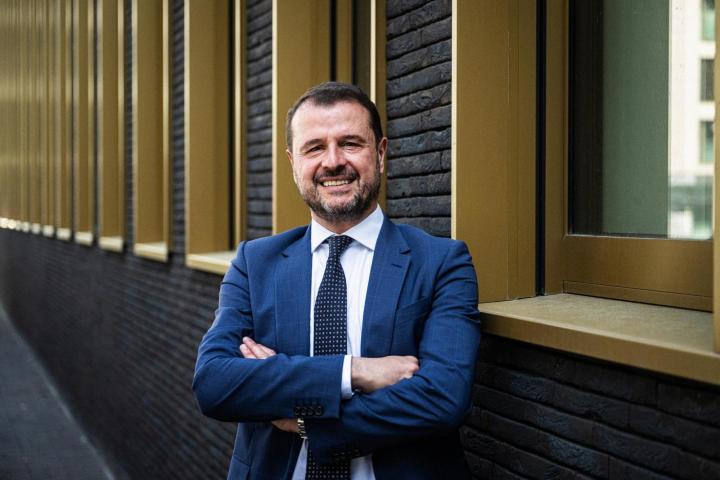
The great wealth transfer isn’t just a handover of assets. It’s a clash of priorities between generations. At HSBC Luxembourg, Emanuele Vignoli is helping families bridge that gap with a blend of technology and trust.
Vignoli, CEO of HSBC in Luxembourg, spoke to Investment Officer about the 84 trillion dollars worldwide expected to be handed over from the baby boomer generation to their heirs over the next two decades. In Luxembourg, that amount comes to 132 billion dollars, per the latest edition of Capgemini’s annual World Wealth Report.
Challenges around preparation
Not all wealthy people are ready for this transition. In fact, nearly half of entrepreneurs (47 percent) believe they need help with structuring their business succession, according to HSBC’s Global Entrepreneurial Wealth Report 2025. Fifty percent fear that the inheritance will lead to family disputes, while 40 percent even say that it’s difficult to discuss money with the next generation.
“Many entrepreneurs remain emotionally tied to their businesses or cautious about family dynamics,” explained Vignoli. Challenges include cross-border complexities, clarifying roles within the family, educating the next generation, both technically and emotionally, and adapting to changes like digital assets or an increased interest in sustainable investments.
HSBC therefore employs a “gradual approach” that involves establishing family charters or advisory boards and engaging heirs in open discussion and dedicated educational programmes. “Passing on wealth is not just about transferring assets,” said Vignoli. “It’s about passing on purpose and unity.”
Purpose, impact, transparency
On top of that, younger clients often have different goals compared to older clients, which makes intergenerational dialogue crucial. The bank has seen growing interest in ESG and impact investing among the next gen, especially younger entrepreneurs and first-generation wealth creators. “Younger clients are driven by purpose, impact, and transparency,” said Vignoli. “They look for innovation, themes like technology or climate, and measurable outcomes.”
“Clients appreciate the speed and transparency of digital tools, but when it comes to strategy, governance, or complex assets, they rely on trusted advisors.”
Beyond a desire for positive societal impact, the next generation of clients is also showing increased interest in private assets. The 2024 edition of HSBC’s European Family Office Report found that family offices in Europe already allocate 24 percent of their portfolios to private markets, and they’re looking to further boost their exposure to private equity and private credit in particular. “Younger generations show an even stronger appetite for private equity, venture capital, and innovation-driven sectors,” noted Vignoli. “They see private assets as a way to access growth, diversification, and impact.”
Older generations, on the other hand, concentrate more on capital preservation and legacy. HSBC aims to bridge the priorities of older and younger clients “by aligning long-term strategies around shared values and responsible growth,” said Vignoli. “It’s about enabling clients to invest in the future, not just preserve the past.”
Blend digital tools and personal relationships
In an era of constant connectivity, digital access is also a priority for the younger generation. Ninety-four percent of the wealthy individuals in Luxembourg polled as part of Capgemini’s wealth report said that they plan to switch to another wealth management firm within two years after their inheritance, while 59 percent noted that wealth management services were not available on their “preferred channels”.
“Technology strengthens rather than replaces the human relationship.”
Retaining the next generation is a challenge that HSBC takes seriously. With younger clients demanding simplicity, transparency, and digital access, the bank combines digital tools with long-term personal relationships. One example is Prism Advisory, powered by Blackrock’s Aladdin wealth platform, which helps private banking clients personalise investment strategies en connect family portfolio across borders.
“Technology strengthens rather than replaces the human relationship,” said Vignoli. But when situations get complicated, clients want an expert they can trust. Building this trust is an endeavour that starts well before the wealth transfer takes place.
Despite the rise of digital platforms and technology like AI, clients are still coming to human private bankers, and “perhaps even more so than before,” he added. “Clients appreciate the speed and transparency of digital tools, but when it comes to strategy, governance, or complex assets, they rely on trusted advisors.”
For Vignoli, “private banking remains, above all, a people business.”
This is the second in a three-part Investment Officer series examining how Luxembourg’s private banks are navigating the great generational wealth shift. Find a link to the first article below.